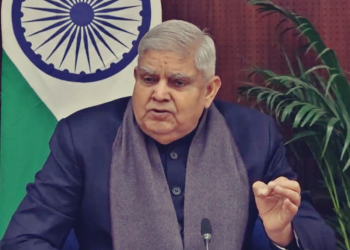New Delhi: Seeking to bring in more clarity on various aspects connected with what constitutes as “misleading advertisements”, the Centre on Friday said the new guidelines offer a framework for manufacturers, service providers, advertisers and advertising agencies too.
“Advertisements have a great importance for consumers. It has got a very important paradigm for the consumers. These guidelines provide outline for dealing with misleading advertisements, if these harm the consumers’ interest. To make it more explicit, to make it more clear so that nobody is caught off guard, they should know what is the framework, we have come up with these guidelines,” Secretary, Consumer Affairs, Rohit Kumar said.
Kumar was addressing the media in connection with the Central Consumer Protection Authority (Prevention of Misleading Advertisements and Necessary Due Diligence for Endorsement of Advertisements) Guidelines, 2022 issued by the Central Consumer Protection Authority (CCPA) late on Thursday night.
These guidelines are to come into effect on Friday itself.
As per the section 2 (28) of the Consumer Protection Act, 2019, the term “misleading” advertisement means such ads that falsely describes a product or service; gives a false guarantee to, or is likely to mislead the consumers as to the nature, substance, quantity or quality of a product or service; or conveys an express or implied representation which, if made by the manufacturer or seller or service provider thereof, would constitute an unfair trade practice; or deliberately conceals important information.
These guidelines provide for various criteria’s for an advertisement to be considered valid and non-misleading; bring clarity on bait advertisements, surrogate advertisements and free claims advertisements; lay down conditions to be complied while issuing bait advertisement and free claims advertisements; prohibit surrogate advertisements, and enumerate various factors to be considered in publishing advertisements specifically targeting children.
The guidelines also provide various duties of manufacturer, service provider, advertiser and advertising agency.
“The product or service advertisement should indicate the source and date of independent research or assessment in case claims in the advertisement are based on or supported by such research or assessments; it should specify due diligence to be carried out while endorsing in advertisements and must reflect the genuine, reasonably current opinion of the individual, group or organisation making such representation. The ad must be based on adequate information about, or experience with, the identified goods, product or service,” it said.
(IANS)






















